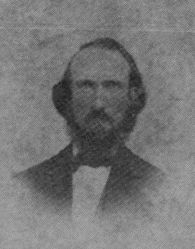This week, against Southern jubilation over the victory in the Second Battle of Bull Run, Samuel Boykin, editor of Georgia Baptist’s Christian Index, offers a summation of the second annual session of the Confederate Congress, currently in the third week (the session will not conclude until October) in Richmond, the nation’s capital.
Many important bills and resolutions have been introduced into both Houses, but few finally passed. Resolutions of thanks to officers for meritorious conduct have been passed by the the quantity, all well deserved as far as we know. The Senate has passed the bill amending the Conscription law. What the amendments are, has not been stated. We presume, however, that one item will be to give the President power to call out all between the ages of thirty-five to forty-five which he deems is proper. This is right. Every man capable of bearing arms in the Confederate States ought to be put upon a war footing. We do not mean that all should be called into the field at once, for an army is needed at home to make provision for that in the field. But we mean there should be efficient military organizations, embracing every able-bodied man in the Confederate States. Our purpose to whip the Yankees or die, to the last man, should be made manifest to them and to the balance of the world. We should exhibit a oneness of determination in regard to the prosecution of the war, which will demonstrate to our enemies the hopelessness of the task they have undertaken. They begin to perceive and to understand something of that determination already, but they are not sufficiently satisfied yet.
The Conscription Act is not without critics. Many soldiers want to go home to provide for their families, and would have already left the army if not forced to stay on. That large slaveowners are exempt from the draft is a bitter pill for poor men to swallow, leading to common grumblings of a rich man’s war, but a poor man’s fight. Tellingly, the Baptist press of the South rarely addresses the internal class division between slaveowners and poor whites within the Confederacy. Perhaps the papers are not pressed to do so; subscribers are educated enough to read and largely middle class to upper class, while many poor white southerners are illiterate–as Confederate Baptist chaplains discover in their army ministries–and without discretionary money to purchase news subscriptions in the first place.
As Boykin surmises, the Congress indeed extends the age requirement of the military draft to that of 45.
Source: “Confederate Congress,” Christian Index, September 2, 1862



